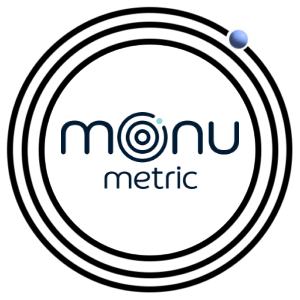Google stands as the benevolent gatekeeper in the vast expanse of the digital universe, where information reigns supreme. Its mission? To provide users with helpful content. But what does this mean for you as a content creator? How can you ensure your impact is helpful and you still get compensated for sharing your genius, creativity, and information with the world? Buckle up, because we’re about to delve into the art of crafting content that not only ranks high but genuinely helps and resonates with your audience and is still monetizable.
Understanding Google's Quest for Helpful Content
Google’s algorithm has evolved to focus on more than just keywords and backlinks. Today, it’s all about the user. The search giant is on a mission to serve users the most relevant, informative, and genuinely helpful content possible. But what does this helpful content entail?
Relevance: Your content should directly address the needs and queries of your target audience. To achieve this, conduct thorough research to understand what your audience is searching for.
Quality: Quality goes beyond grammar and spelling. It means providing accurate, up-to-date, and insightful information. Be the trusted source your audience turns to.
Engagement: A helpful piece of content should captivate and engage your readers. Use storytelling, visuals, and interactive elements to keep your audience invested.
User Experience: Ensure your website is user-friendly, loads quickly, and is mobile-responsive. A smooth experience keeps users engaged and more likely to return.
Can Your Ads Impact Google’s Helpful Content?
Yes, ads can impact Google’s new “Helpful Content” initiative. While Google’s primary focus is to provide users with helpful and relevant content, the presence and impact of ads on a webpage can influence the overall user experience and, consequently, how Google perceives the helpfulness of that content.
Trust Monumetric to Create the Perfect Balance
The relationship between SEO companies and AdTech has always been a complex one, with each side striving for its own version of success. Monumetric’s approach is based on years of experience and research. And as a Google Certified Publishing Partner, we do our jobs very, very well!
Understanding Google’s SEO Bots: Google’s SEO algorithms remain closely guarded secrets. While SEO companies aim for a perfect score across the board, it’s important to acknowledge that Google provides only limited details about how their SEO bots work.
Ads and SEO: Many SEO companies make bold claims about how ads impact a site’s SEO. However, Google’s documentation merely states that content should not be overly obstructed by ads. The term “intrusive” is a qualifier that some SEO companies overlook.
Our Approach: To address these concerns, we employ several strategies:
- We set high price floors to limit the number of displayed ads, focusing on quality over quantity.
- We’ve developed solutions to combat Content Layout Shifting (CLS), which has a greater impact on SEO than the presence of ads.
- Our code is optimized for low latency and asynchronous delivery to minimize any impact on page rendering.
- We minify our ad code to reduce its size and impact on users’ browsers.
- We strategically place ads to avoid covering the main content, considering the site’s layout.
Interactions with Google: We maintain compliance with Google’s rules and regulations. Google regularly audits our accounts and sites to ensure we meet their requirements.
Use of Google as an Ad Server: We primarily use Google as our ad server. It’s important to note that Google, like any business, prioritizes its own products. They may favor their ad server when penalizing sites for using a competitor’s service.
Additional Measures: We can enable “First Interaction” on our ad code to hide ads from SEO scrapers and bots until a user interacts with the page. This may impact revenue on sites with substantial bot traffic but is a protective measure.
Ad Strategy: While we can adjust ad strategies to be more conservative, it may not always yield significant improvements, given the considerations mentioned above.
Conclusions
In summary, while there is an increased necessity to create content that is helpful to users around the world, this doesn’t have to impact your ability to monetize your website and be compensated for sharing this helpful information. To align with Google’s initiative for helpful content, you should carefully consider the user experience and focus on making your content relevant, accurate, and engaging. Then trust Monumetric to ensure that ads do not hinder the overall quality and helpfulness of the content. We are experts in balancing the presence of ads with a user-first approach that can help maintain and improve search rankings in light of Google’s criteria for helpful content.
If you are not a part of our amazing network, what are you waiting for? Visit Monumetric.com to see if your site qualifies and apply.




